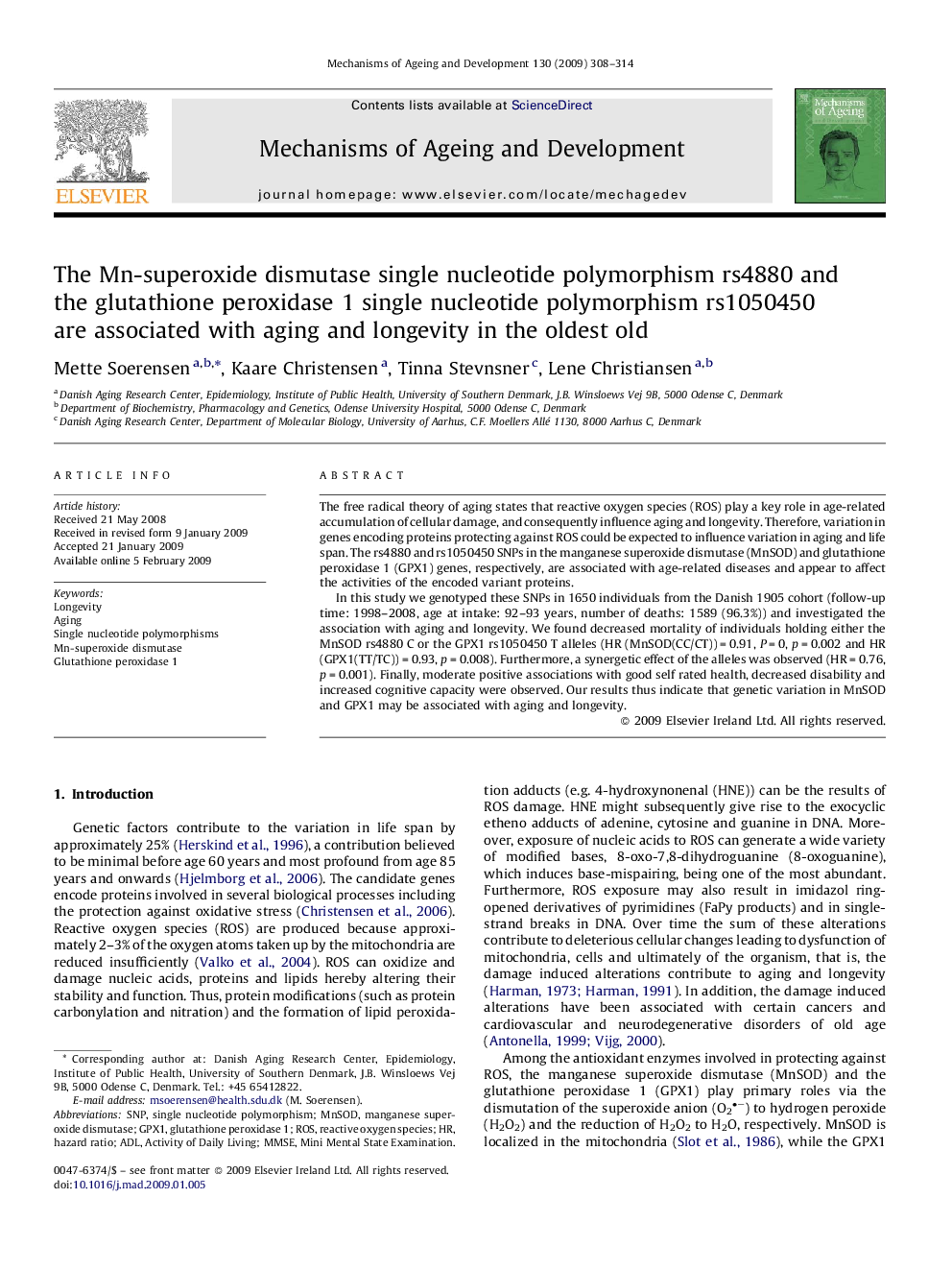| کد مقاله | کد نشریه | سال انتشار | مقاله انگلیسی | نسخه تمام متن |
|---|---|---|---|---|
| 1919715 | 1535656 | 2009 | 7 صفحه PDF | دانلود رایگان |

The free radical theory of aging states that reactive oxygen species (ROS) play a key role in age-related accumulation of cellular damage, and consequently influence aging and longevity. Therefore, variation in genes encoding proteins protecting against ROS could be expected to influence variation in aging and life span. The rs4880 and rs1050450 SNPs in the manganese superoxide dismutase (MnSOD) and glutathione peroxidase 1 (GPX1) genes, respectively, are associated with age-related diseases and appear to affect the activities of the encoded variant proteins.In this study we genotyped these SNPs in 1650 individuals from the Danish 1905 cohort (follow-up time: 1998–2008, age at intake: 92–93 years, number of deaths: 1589 (96.3%)) and investigated the association with aging and longevity. We found decreased mortality of individuals holding either the MnSOD rs4880 C or the GPX1 rs1050450 T alleles (HR (MnSOD(CC/CT)) = 0.91, P = 0, p = 0.002 and HR (GPX1(TT/TC)) = 0.93, p = 0.008). Furthermore, a synergetic effect of the alleles was observed (HR = 0.76, p = 0.001). Finally, moderate positive associations with good self rated health, decreased disability and increased cognitive capacity were observed. Our results thus indicate that genetic variation in MnSOD and GPX1 may be associated with aging and longevity.
Journal: Mechanisms of Ageing and Development - Volume 130, Issue 5, May 2009, Pages 308–314